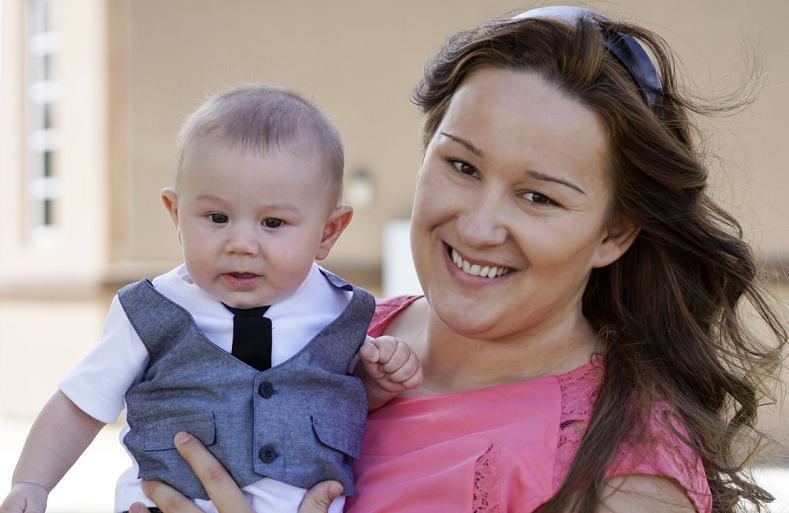In 2023, the United States recorded 669 maternal deaths, a rate of 18.6 per 100,000 live births, according to the CDC. That’s a 17% drop from 2022 and a 43% decline from the pandemic peak of 32.9 in 2021. These numbers reflect real lives saved. And they flatly contradict the repeated warnings that protective pro-life laws following the Dobbs decision would trigger a maternal health crisis.
For decades, pro-abortion activists insisted that protecting unborn children would inevitably endanger their mothers, but the data tell a different story. Since Roe v. Wade was overturned in June 2022, maternal mortality has not only failed to rise, it has fallen, sharply and consistently. That is not a narrative, it’s a measurable outcome.
To be clear, no one seriously attributes the recent decline solely to the Dobbs ruling or pro-life laws. The COVID-19 pandemic wreaked havoc on hospitals and pregnant women alike, and the 2021 spike in maternal deaths was driven in large part by COVID-related complications. As that pressure receded, the number of deaths decreased. In 2023, just eight maternal deaths were attributed to COVID, which is a dramatic drop from the hundreds recorded during the height of the crisis.
REACH PRO-LIFE PEOPLE WORLDWIDE! Advertise with LifeNews to reach hundreds of thousands of pro-life readers every week. Contact us today.
But what matters here is what did not happen. Maternal deaths did not rise once protective pro-life laws were enacted. The fact is, they fell. And that trend has continued into early 2024, with provisional CDC data showing rates hovering near 17.9 per 100,000, on par with pre-pandemic levels.
This matters because abortion advocacy groups, abortion profiteers, media pundits, and even some public health officials warned that pro-life laws would devastate women’s health. They claimed that restricting abortion would flood hospitals with high-risk pregnancies, delay emergency care, and drive women to dangerous alternatives. Yet those predictions, made with absolute certainty, have not been borne out by the facts.
We should be honest about what is, and is not, causing maternal deaths. The leading causes are well documented: cardiovascular conditions, hypertension, mental health crises, hemorrhage, and infection. These account for most cases; nearly 80% of them, according to the CDC, are preventable.
That’s why the most effective tools to lower maternal mortality are not tied to abortion access. They’re rooted in access to quality care before, during, and after childbirth. That includes timely prenatal visits, risk assessments, postpartum follow-ups, and emergency obstetric care. It includes Medicaid expansion, extended postpartum coverage, and perinatal quality initiatives. It includes supporting Black and Indigenous mothers, who continue to die at rates two to three times higher than their White peers.
None of that requires ending life in the womb. All of it demands a serious commitment to life outside of it.
We are told of states that have reported increases in maternal mortality that coincide with post-Dobbs pro-life laws. However, a closer look reveals the flaws in those claims due to contributing factors such as hospital closures, delayed care, and COVID-19 aftershocks, which muddy the picture. Even pro-abortion groups like the Gender Equity Policy Institute, which reported a 56% increase in Texas’s MMR in 2022, admitted that their results were “not statistically significant.” In other words, they don’t prove anything.
What the national data does prove is this: maternal mortality is declining. And that decline coincides not with expanded abortion access, but with targeted improvements in maternal health systems. States that extended postpartum coverage, invested in perinatal collaboratives, and supported community health centers saw some of the steepest drops. That’s where the focus and our tax dollars should be.
The pro-life movement cannot afford to win the legal fight and lose the public health battle. Protecting unborn children means safeguarding their mothers, too.
Maternal mortality is a national tragedy that transcends ideology. However, if we want to claim moral seriousness, we must move beyond slogans. We have to prove, with action, not just argument, that a nation that cherishes unborn life must also safeguard the women who carry it.
LifeNews.com Note: Raimundo Rojas is the Outreach Director for the National Right to Life Committee. He is a former president of Florida Right to Life and has presented the pro-life message to millions in Spanish-language media outlets. He represents NRLC at the United Nations as an NGO. Rojas was born in Santiago de las Vegas, Havana, Cuba and he and his family escaped to the United States in 1968.












